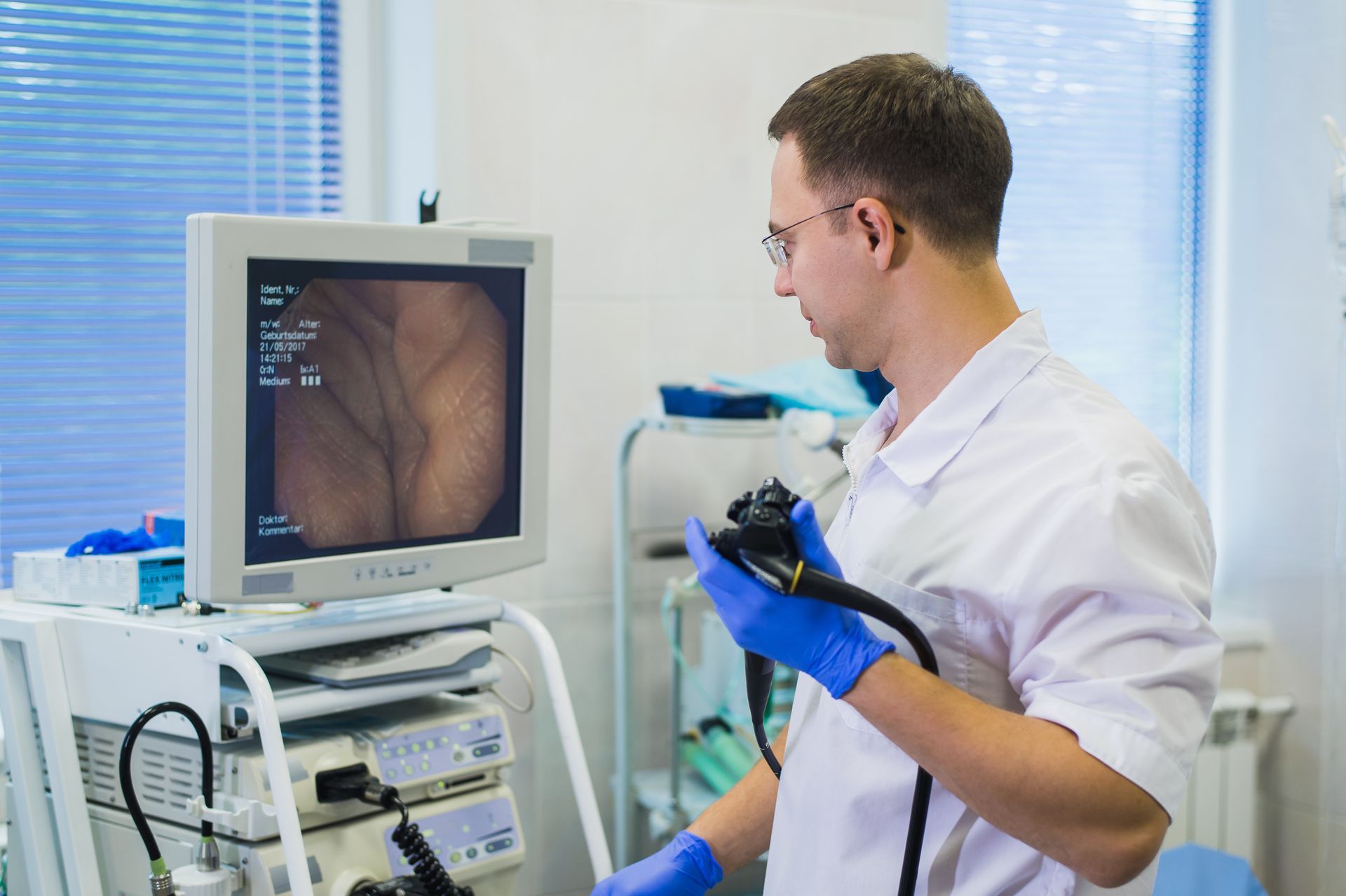ACHALASIA IN NORTHWEST FLORIDA
When you experience a challenge swallowing, it could be a rare disorder known as achalasia. When it is difficult for food and liquid to pass from the esophagus to the stomach it could be a sign of nerve damage in the swallowing tube. This nerve damage reduces the ability of the esophagus to constrict and squeeze food down into the stomach. This condition can cause other digestive issues like GERD.
HAVE QUESTIONS ABOUT ACHALASIA?
-
What Causes Achalasia?
While a direct or confirmed cause of achalasia is unknown, a key suspicion is that is caused by the loss of nerve cells in the esophagus. This cell loss is believed to be caused by an autoimmune response or a viral infection.
-
What are the Symptoms of Achalasia?
There are several symptoms that can be a sign of achalasia. The symptoms will appear gradually and get worse over time. The main symptom is the inability to swallow, also known as dysphagia. Dysphagia is the sensation that food is stuck in your throat. Other signs of achalasia include:
- Heartburn
- Food and saliva regurgitation
- Coughing at night
- Belching
- Weight loss
- Vomiting
- Chest pain
-
How is Achalasia Diagnosed?
Achalasia can be easily misdiagnosed or overlooked due to its shared symptoms with other gastrointestinal conditions. An x-ray of the upper digestive system, known as an esophagram can reveal potential blockages. This type of x-ray is taken after you drink a chalking substance that coats the digestive tract. An esophageal manometry measures the rhythmic muscle contractions during swallowing. This test determines how well the lower esophageal sphincter opens and closes while swallowing. An upper endoscopy uses a small, flexible tune with a camera and light to examine the esophagus and stomach. This test can reveal any blockages as well as collect a tissue sample to check for other complications.
-
What are the Non-Surgical Treatment Options for Achalasia?
In order to treat achalasia there are a few methods that can be employed without surgery. Muscle relaxant medication like nitroglycerin or nifedipine taken before a meal can be considered if you are a candidate for certain types of surgery, but are rarely effective. Botox, or botulinum toxin type A, is another type of muscle relaxant that is injected directly into the esophageal sphincter. If you are not a good candidate for surgery, this can be an ideal option. Each injection lasts for about six months. A pneumatic dilation is a third option where a balloon is inserted through endoscopy to enlarge the opening of the esophageal sphincter.
-
What are the Surgical Treatment Options for Achalasia?
There are two types of surgery that can treat achalasia. Heller myotomy is the cutting of the muscle at the lower end of the esophageal sphincter that allows food to pass more easily into the stomach. This procedure can be done laparoscopically to minimize invasiveness. The development of GERD after this surgery is a possibility. POEM, or peroral endoscopic myotomy, is another surgical option where the surgeon creates an incision in the lining of the esophagus with an endoscope. Similar to the Heller myotomy, an incision is made into the muscle at the lower end of the esophageal sphincter.
READY TO SCHEDULE AN APPOINTMENT?
OTHER DIGESTIVE CONDITIONS EXPLAINED:
CONTACT
850-763-5409
ADDRESSES
4 LOCATIONS
204 E 19th Street, B, Panama City
12216 Panama City Beach Pkwy, D, Panama City Beach
4295 3rd Ave, Marianna
101 Good Morning St., 109B, Port St. Joe
Subscribe to our newsletter:
subscribe to our newsletter
We will get back to you as soon as possible.
Please try again later.



